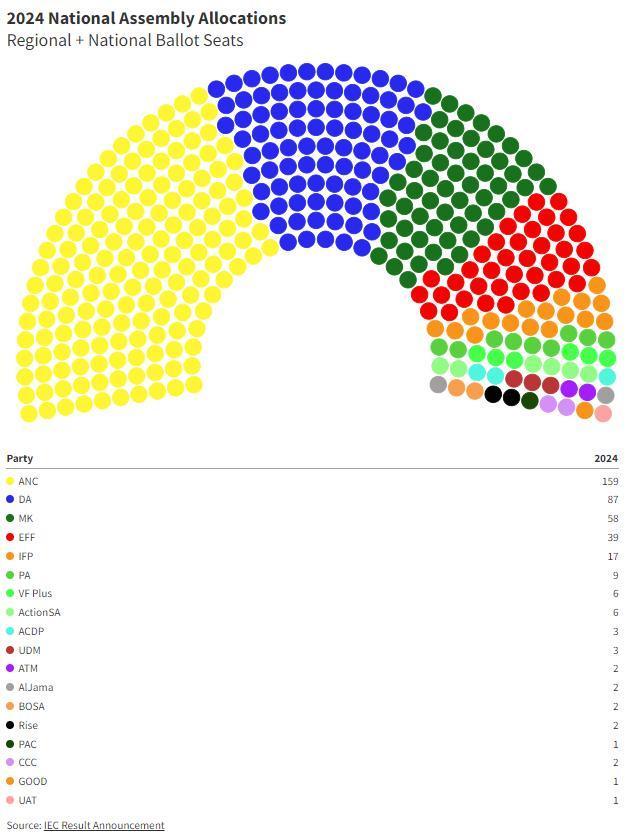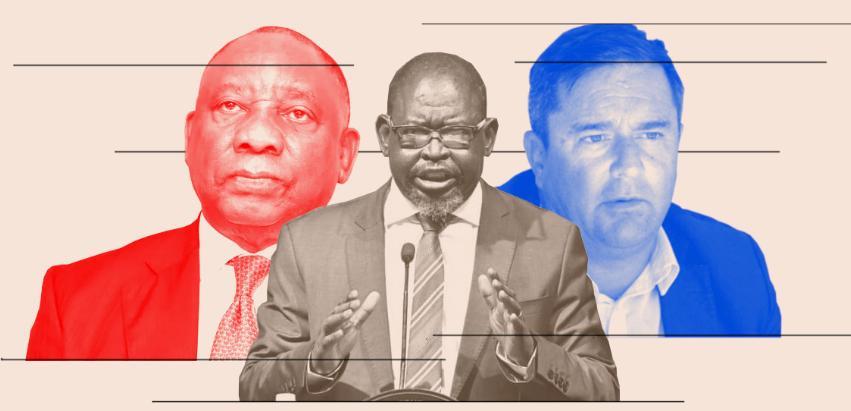Africa-Press – South-Africa. South Africa’s rollercoaster 2025 Budget process remains far from over, with mounting political instability threatening to derail critical public spending.
Speaking to BusinessTech, Chairperson of Parliament’s Standing Committee on Appropriations, Mmusi Maimane, said that “there is a very real risk that exists” of the critical Appropriations Bill not passing.
Broadly, the Appropriation Bill, with its vote scheduled for 23 July 2025, is one of two pieces of legislation that implement the country’s budget.
It authorises government spending and allocates funds to departments and entities, divided into budget votes, each corresponding to a specific government department or entity for things like operations and service delivery.
It follows the Division of Revenue Bill, passed on 26 June, which determines how funds are shared between national, provincial, and local government.
For the Appropriations Bill to proceed, individual departmental budget votes must be approved by a majority in the National Assembly.
This is according to an opinion given to Chairperson Maimane by a Parliamentary legal adviser, if even one vote fails, the final vote on the Appropriations Bill cannot take place.
“Simply, the opinion says that if you reject some, you reject all. And if this is true, it would be disastrous because only 10% of a department’s budget can be spent,” said Maimane.
“This won’t cover salaries, let alone anything else.”
The Money Bills Amendment Procedure and Related Matters Act technically allows Parliament to amend the bill, adjusting or reallocating funds as needed.
However, in practice, rejecting an entire department’s budget is very uncommon, as Parliament typically resolves the disputes through amendments or negotiations during the committee stage, which may not be the case this time round.
Maimane believes that the legal opinion given is probable, given the current differences between the African National Congress (ANC) and the Democratic Alliance (DA).
He said that he is meeting with the Speaker and the Executive to discuss the matter further.
ANC Parliamentary Chief Whip Mdumiseni Ntuli told BusinessTech that his party feels confident with it passing through consultation with all parties in Parliament, calling it a “national imperative.”
The budget fiasco
Chairperson of Parliament’s Standing Committee on Appropriations, Mmusi Maimane
At the heart of the deadlock is contention within the Government of National Unity (GNU), formed after the ANC lost its parliamentary majority in the 2024 general elections.
The broad coalition, comprising 10 ideologically diverse parties, including the longtime official opposition party, the Democratic Alliance (DA), has recently been fractured by disagreements over fiscal policy.
The Minister of Finance typically presents the budget in February, which includes the Fiscal Framework, Appropriation Bill, Division of Revenue Bill, and other revenue-related bills.
The budget was scheduled to be tabled by Finance Minister Enoch Godongwana on 19 February 2025, but was postponed due to a lack of consensus within the GNU, particularly over a proposed 2% Value-Added Tax (VAT) increase to 17%.
The DA, the second-largest party in the GNU with 86 seats to the ANC’s 159 (201 needed for a majority), opposed the VAT hike and signalled its intention to oppose it.
This was an unprecedented delay in the post-apartheid era, given the ANC’s three-decade-long overwhelming parliamentary majority and ability to get its legislation through without sweating about the numbers.
Then in March, Godongwana tabled a revised budget, reducing the VAT hike to 0.5% over two years to raise R43 billion in additional revenue.
The proposed VAT increase, even at a reduced rate, faced strong opposition from the DA, and the likes of opposition parties like the Economic Freedom Fighters (EFF), uMkhonto weSizwe (MK), ActionSA and others.
The DA’s opposition to the VAT hike saw the ANC to seek support from smaller opposition parties like Action SA and Build One South Africa (BOSA), who conditionally supported the budget with the expectation that the VAT increase would be removed.
However, the DA and EFF challenged the 2025 budget’s second tabling in court, arguing it bypassed parliamentary oversight and harmed the poor.
After intense negotiations, Godongwana then scrapped it entirely in a third version tabled on 21 May, replacing it with a General Fuel Levy increase.
The revised plan won cautious backing from the DA and passed with support from the other GNU partners, along with some others.
National Assembly seat allocation (201 for a majority). Graphic: Seth Thorne

Budget drama reignites
Just as it seemed to be blue skies ahead, the national budget process is once-again on the brink of collapse due to intensifying political infighting.
Tensions escalated after President Cyril Ramaphosa fired DA Deputy Minister Andrew Whitfield over an unauthorised trip to the US.
DA leader John Steenhuisen issued a scathing response, dangling a no-confidence motion against the President, withdrawing from the National Dialogue and announcing that the DA would vote against budgets for ANC-led departments of Ministers allegedly implicated in corruption.
According to Steenhusien, this includes voting against the budgets for Higher Education and Human Settlements.
In response, some ANC members indicated that they may block DA-led department budgets in return. However, no formal communication in this regard has been indicated.
DA Chief Whip George Michalakis said in an interview with News24 that the DA was aware of the legal advice that if a majority cannot be secured for a single vote, “then the whole Appropriation Bill fails.”
“The budget process and our presence in the GNU are two separate things. It all depends on what the president is willing to do. Hopefully, between now and the vote on 23 July, the president will do the right thing,” said Michalakis.
The DA did not respond to queries from BusinessTech by the time of publication.
Several opposition parties outside the GNU, alongside the DA in some instances, are already voting against the various budgets, including MK with 58 seats and the EFF with 39 seats.
Ntuli stated that the ANC will engage with all parties represented in Parliament, not just those in the GNU, as they did in April, to secure a majority.
“We are certainly confident and will do everything possible to ensure the Appropriation Bill is passed on 23 July” said the ANC Parliamentary Chief Whip.
ActionSA has already opposed nearly half of the past departmental budgets and stated that its support for the Appropriations Bill is far from a done deal.
“In the past, the ANC would simply table a budget, vote it through, and move on,” ActionSA parliamentary leader Athol Trollip said in an interview on State of the Nation.
“Now, even after three versions, it’s still unresolved. If just one department’s budget is rejected… the entire national budget fails.”
Several prominent ANC figures and government officials emphasised that if the DA does not support the upcoming Appropriations Bill, the party risks being booted from the GNU.
This tension between the ANC and DA has raised question marks about the GNU’s future in its current composition.
Reactions to the budget
Dawie Roodt
The EFF and MK have continued to oppose budgets, criticising spending cuts and insufficient allocations for socio-economic priorities.
Trollip said that they would not consider supporting the ANC unless they adapt their “behavioural pattern” and their expectation for other parties to “just go along with them.”
Maimane said that the GNU must “get its act together” as “no department can operate sufficiently on 10% of its budget.”
He added that such political fighting would harm investor confidence, which the GNU promised to stabilise. “It would also hurt the everyday South African.”
On the investor front, economist Dawie Roodt said that political instability within the GNU is doing more harm to investor confidence than the budget delay itself.
Roodt calls the standoff “a political fight taking place in a budget ring,” warning that “South Africa is really suffering because of all this.”
While failure to pass the Appropriation Bill would be “quite disruptive,” he said that the political turmoil spooks investors more.
He describes the dynamic as deeply dysfunctional: “The ANC waits for the DA to leave, and the DA waits for the ANC to kick them out.”
“The ANC haven’t accepted that they are actually in a coalition,” said Roodt.
For More News And Analysis About South-Africa Follow Africa-Press






